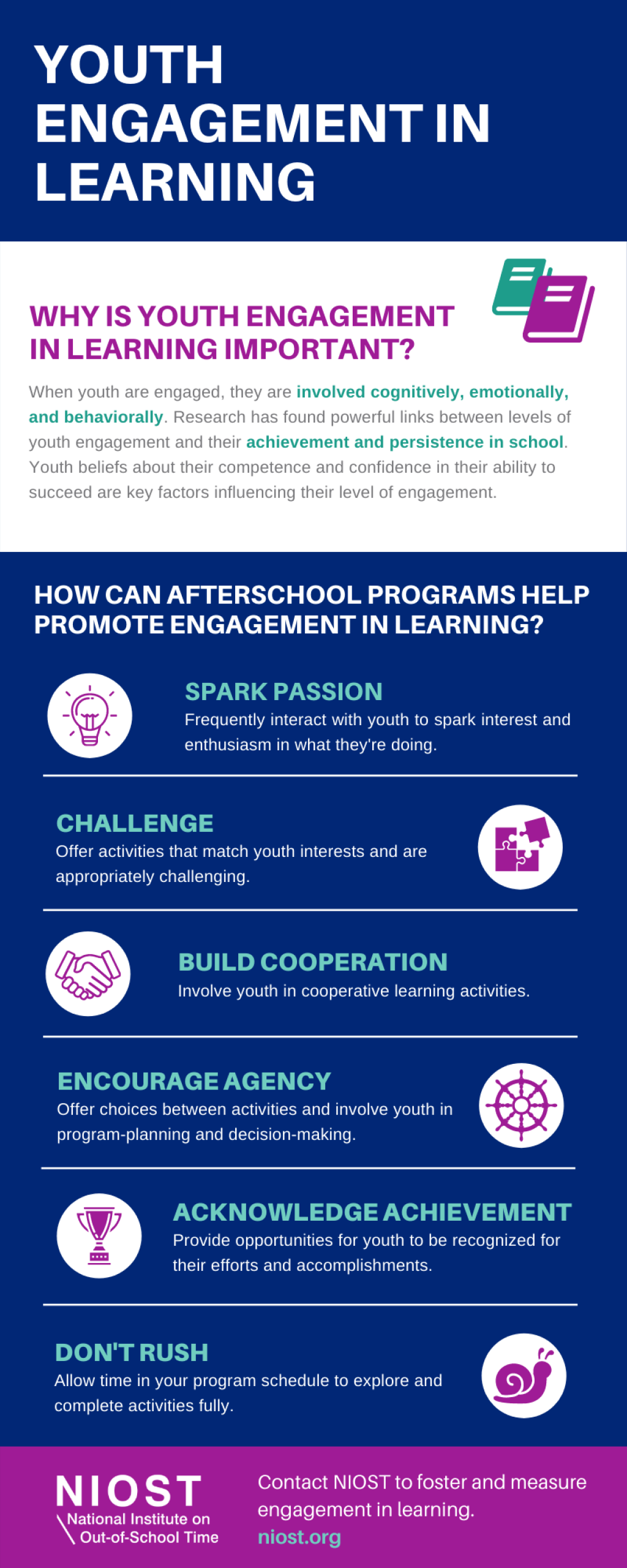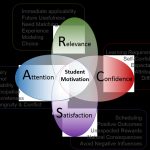Unlocking Endless Learning Opportunities For Youth: Empowerment Just A Click Away!
Learning Opportunities for Youth
Introduction
Dear Readers,
1 Picture Gallery: Unlocking Endless Learning Opportunities For Youth: Empowerment Just A Click Away!

Welcome to this article on learning opportunities for youth. In today’s fast-paced world, it is essential for young individuals to have access to various learning opportunities that can help shape their future. Whether it’s through formal education, vocational training, or extracurricular activities, these opportunities play a vital role in the personal and professional development of the youth.

Image Source: niost.org
Throughout this article, we will explore the different aspects of learning opportunities for youth, including their significance, who they benefit, when and where they occur, why they are important, and how they can be accessed. By the end, we hope to provide you with a comprehensive understanding of the subject and inspire you to take advantage of the various learning opportunities available.
What are Learning Opportunities for Youth? 💡
Learning opportunities for youth encompass a wide range of experiences that aim to enhance their knowledge, skills, and abilities. These opportunities can be formal, such as attending school or university, or informal, such as participating in workshops, internships, or volunteering activities. The primary goal is to provide young individuals with the chance to learn and grow in areas that interest them and prepare them for their future endeavors.
Formal Education
Formal education, typically provided by schools and universities, offers a structured learning environment for youth. It includes subjects like mathematics, science, languages, and humanities, providing a solid foundation for their academic and intellectual development. Through formal education, students acquire essential skills, such as critical thinking, problem-solving, and communication, which are crucial in today’s competitive world.
Vocational Training
Vocational training programs are designed to equip youth with practical skills and knowledge for specific occupations. These programs focus on areas like technology, healthcare, hospitality, and various trades. By gaining expertise in a particular field, young individuals can enhance their employability and career prospects, ensuring a smooth transition from education to the workforce.
Extracurricular Activities
Extracurricular activities, such as sports, arts, music, and clubs, offer youth opportunities to explore their interests and passions outside the classroom. These activities promote teamwork, creativity, leadership, and discipline. Engaging in extracurricular activities can help young individuals develop a well-rounded personality and discover their hidden talents, ultimately contributing to their personal growth and self-confidence.
Online Learning Platforms
In this digital age, online learning platforms have become increasingly popular as they provide accessible and flexible learning opportunities for youth. These platforms offer a vast array of courses and resources on various subjects, allowing individuals to learn at their own pace and from the comfort of their homes. Online learning enables youth to expand their knowledge and acquire new skills, regardless of their geographical location or financial constraints.
Workshops and Seminars
Workshops and seminars provide interactive learning experiences for youth, typically focused on specific topics or industries. These events often feature industry experts, professionals, and motivational speakers who share their knowledge and insights. Attending workshops and seminars exposes young individuals to new ideas, trends, and networks, fostering personal and professional growth.
Internships and Job Shadowing
Internships and job shadowing programs allow youth to gain practical work experience and understand the dynamics of a particular industry or profession. These opportunities provide firsthand exposure to real-life work environments, allowing young individuals to apply their theoretical knowledge, develop essential skills, and build professional networks. Internships and job shadowing help youth make informed career decisions and enhance their employability in the job market.
Who Can Benefit from Learning Opportunities for Youth? 🎯
Learning opportunities for youth are beneficial to a wide range of individuals, including students, graduates, and young professionals. Whether you are in high school, college, or seeking employment, these opportunities can significantly impact your personal and professional growth. Additionally, individuals from disadvantaged backgrounds or marginalized communities often benefit greatly from learning opportunities, as they serve as a means to bridge the socioeconomic gap and provide them with equal chances for success.
Students
Students, regardless of their age or academic level, can greatly benefit from learning opportunities. These experiences enable them to broaden their knowledge, develop critical skills, and explore their interests. Learning opportunities for students can range from attending classes and participating in extracurricular activities to engaging in online courses and internships.
Graduates
For graduates, learning opportunities offer a chance to further specialize in their chosen field or gain new skills in a different area. Continuing education through advanced courses, vocational training, or workshops allows graduates to stay relevant in the job market and enhance their career prospects.
Young Professionals
Even young professionals can benefit from learning opportunities to upgrade their skills or venture into new areas. Continuous learning through professional development courses, conferences, or mentorship programs enables young professionals to stay ahead in their careers and adapt to the evolving demands of the workplace.
Disadvantaged Individuals
Learning opportunities play a crucial role in empowering disadvantaged individuals. They provide a means to acquire knowledge and skills that can break the cycle of poverty and open doors to better opportunities. By offering equal access to learning opportunities, society can create a more inclusive and equitable environment for all.
When and Where Do Learning Opportunities for Youth Occur? 🗓️🌍
Learning opportunities for youth are available at various times and locations, ensuring accessibility for a wide range of individuals. They can occur throughout a person’s educational journey and beyond, including during school, college, and professional life.
School Years
During the school years, learning opportunities are primarily provided through formal education. Students attend classes, complete assignments, and participate in extracurricular activities offered by their schools. These learning opportunities are structured and take place within the school premises.
College and University
In college and university, learning opportunities expand further. Students are exposed to a more diverse range of subjects, have access to specialized courses, and can engage in research projects, internships, and study abroad programs. Learning at this stage occurs both inside and outside the classroom, allowing students to gain a holistic education.
Professional Life
Even after entering the workforce, learning opportunities continue to be available to youth. Many organizations offer training programs, workshops, and conferences to enhance the skills and knowledge of their employees. Additionally, online learning platforms and professional development courses cater to the needs of working professionals, providing them with the opportunity to upskill and stay relevant in their careers.
Why Are Learning Opportunities for Youth Important? ❓
Learning opportunities for youth are of paramount importance due to the numerous benefits they offer. These opportunities contribute to personal growth, academic excellence, career advancement, and social development.
Personal Growth
Learning opportunities foster personal growth by enabling youth to discover their strengths, interests, and passions. Through these experiences, individuals develop self-confidence, resilience, and a sense of identity. They learn to set goals, overcome challenges, and become well-rounded individuals.
Academic Excellence
Learning opportunities significantly contribute to academic excellence. By providing students with diverse learning experiences, they can explore different subjects, develop critical thinking skills, and excel academically. These opportunities encourage intellectual curiosity and improve overall educational outcomes.
Career Advancement
Access to learning opportunities is vital for career advancement. By acquiring new skills, knowledge, and credentials, youth can improve their employability and increase their chances of landing desirable job positions. Learning opportunities enable individuals to stay ahead in their careers, adapt to industry changes, and progress professionally.
Social Development
Learning opportunities promote social development by fostering teamwork, communication, and empathy. Youth who engage in extracurricular activities, internships, or volunteering learn to collaborate with others, understand diverse perspectives, and develop a sense of social responsibility. These experiences contribute to the overall well-being of individuals and the communities they belong to.
How Can Youth Access Learning Opportunities? 🚪
Access to learning opportunities is crucial for youth to benefit from them fully. Fortunately, there are various avenues through which young individuals can access these opportunities and embark on their learning journeys.
Institutional Programs
Schools, colleges, and universities often offer a range of learning opportunities as part of their curriculum or extracurricular activities. Students can explore subjects, join clubs or societies, or participate in workshops organized by their educational institutions.
Government Initiatives
Government initiatives play a significant role in providing learning opportunities for youth. Scholarships, grants, and funding programs enable individuals from different socioeconomic backgrounds to access quality education and training. Governments also collaborate with educational institutions and organizations to offer vocational training programs and apprenticeships.
Nonprofit Organizations
Nonprofit organizations often work towards bridging the educational gap and providing learning opportunities to disadvantaged youth. These organizations offer scholarships, mentorship programs, and skill-building workshops, ensuring equal access to education and training.
Online Platforms
Online learning platforms have revolutionized the accessibility of learning opportunities. Websites and apps provide a vast array of courses, tutorials, and resources on various subjects. These platforms allow youth to learn at their own pace, anytime and anywhere, making education and skill development more accessible than ever.
Professional Networks
Building professional networks can also lead to valuable learning opportunities. Networking events, conferences, and industry associations provide platforms for young individuals to connect with professionals, gain insights, and access internship or job opportunities. Engaging with professionals in their desired fields can open doors to mentorship and learning experiences.
Advantages and Disadvantages of Learning Opportunities for Youth 📚✅❌
Advantages
1. Enhanced Knowledge and Skills: Learning opportunities equip youth with valuable knowledge and skills, empowering them to succeed in various areas of life.
2. Personal Growth: Engaging in learning experiences enables youth to develop personally, become self-aware, and cultivate a sense of purpose.
3. Increased Employability: Acquiring new skills and credentials through learning opportunities enhances youth’s chances of finding desirable employment and advancing in their careers.
4. Social Development: Learning opportunities promote social interactions, teamwork, and empathy, contributing to the overall social development of youth.
5. Equal Access: Learning opportunities, when accessible to all, bridge the gap between privileged and disadvantaged individuals, promoting inclusivity and equality.
Disadvantages
1. Financial Constraints: Some learning opportunities, such as certain vocational training programs or study abroad experiences, may come with high costs, making them inaccessible to individuals with financial limitations.
2. Time Constraints: Engaging in learning opportunities alongside academic or professional commitments can be challenging, requiring individuals to manage their time effectively.
3. Lack of Awareness: Many youth may not be aware of the diverse learning opportunities available to them, limiting their access to these valuable experiences.
4. Competitive Nature: Some learning opportunities, such as scholarships or prestigious internships, are highly competitive, making it difficult for all individuals to secure them.
5. Limited Resources: In certain regions or communities, the availability of learning opportunities may be limited due to a lack of infrastructure or resources.
Frequently Asked Questions (FAQs) ❔
1. Are learning opportunities only for academically inclined youth?
No, learning opportunities cater to individuals with diverse interests and talents. They are not limited to academically inclined youth but encompass a wide range of fields, including sports, arts, and vocational training.
2. Can learning opportunities be accessed by individuals with disabilities?
Absolutely. Learning opportunities should be inclusive and accessible to individuals with disabilities. Educational institutions and organizations strive to provide equal opportunities for all individuals, regardless of their abilities.
3. How can I find learning opportunities in my local community?
Local community centers, libraries, and educational institutions are excellent sources for learning opportunities. Additionally, online platforms and social media groups may provide information on workshops, courses, or events happening in your area.
4. Are learning opportunities limited to a certain age group?
No, learning opportunities are not limited to a specific age group. They are available for youth of all ages, from primary school students to young professionals seeking career development.
5. Can I pursue multiple learning opportunities simultaneously?
Yes, it is possible to pursue multiple learning opportunities simultaneously, depending on your schedule and personal interests. However, it is essential to manage your time effectively and ensure you do not overwhelm yourself.
Conclusion
Dear Readers, we have explored the vast realm of learning opportunities for youth, discovering their significance, who they benefit, when and where they occur, why they are important, and how they can be accessed. Learning opportunities empower young individuals, fostering personal growth, enhancing academic excellence, advancing careers, and contributing to social development. Whether through formal education, vocational training, extracurricular activities, or online platforms, these opportunities provide youth with the tools and experiences they need to succeed.
We encourage you to seize these opportunities, explore your interests, and embark on a lifelong learning journey. Remember, learning knows no bounds, and the more you invest in your education and personal development, the brighter your future will be.
Final Remarks
Dear Readers, as we conclude this article, we would
This post topic: Offline Classes


